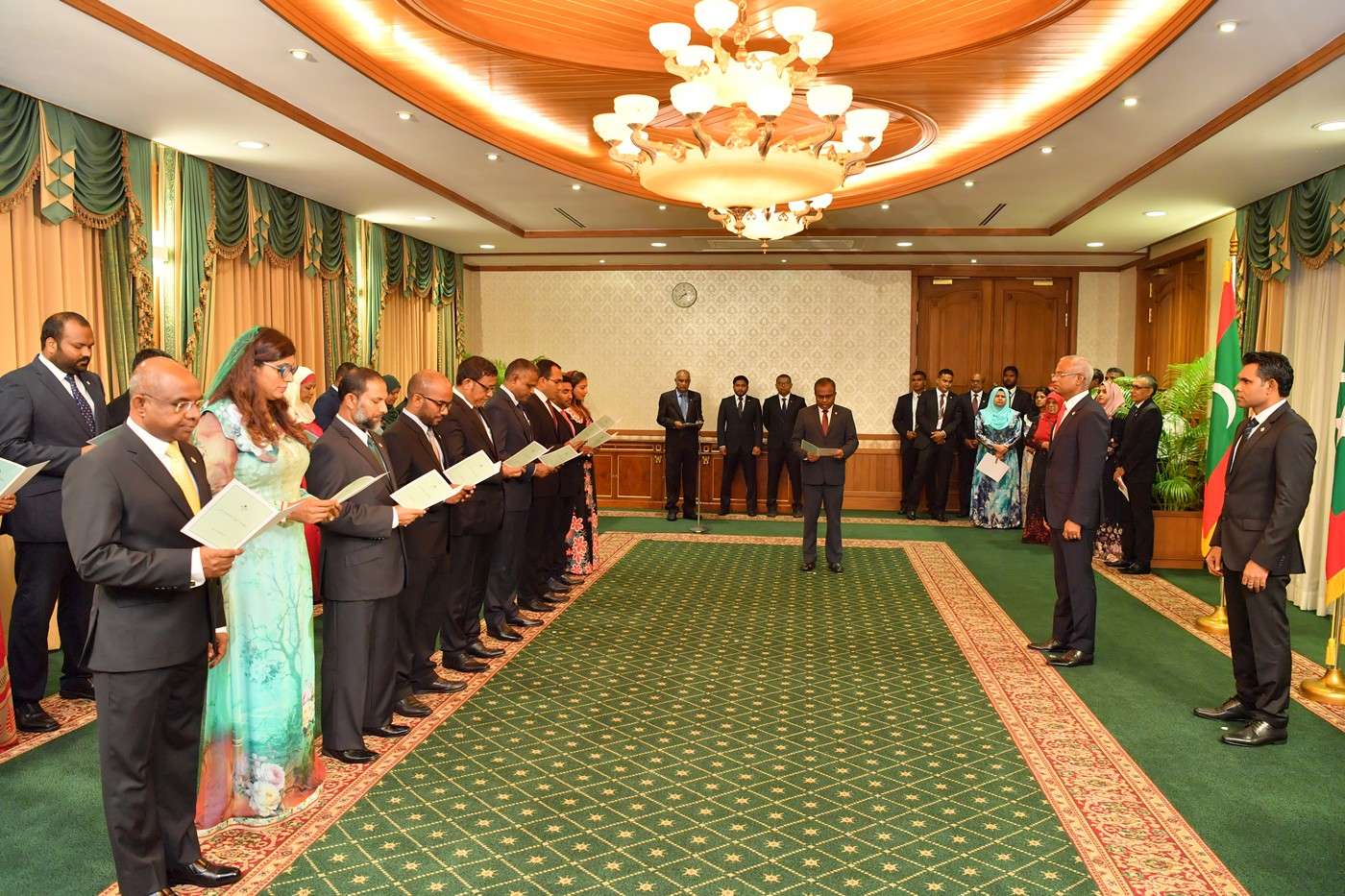Mixed reactions to President Solih’s coalition cabinet
Some appointments drew criticism over qualifications, allegations of corruption and potential conflicts of interest.

18 Nov 2018, 09:00
President Ibrahim Mohamed Solih appointed Saturday night his cabinet comprised of members from the four coalition parties.
Some appointments drew criticism on social media over their qualifications, allegations of corruption and potential conflicts of interest.
With 19 ministers in addition to the Attorney General, Solih’s cabinet is also the largest in Maldivian history, counting five more ministries than former president Abdulla Yameen’s administration. But the wage bill would be 19 percent lower with 100 fewer political appointees, according to his spokeswoman.
Solih, the Maldivian Democratic Party’s former parliament leader, contested the election as the candidate of the four-party coalition, along with a Jumhooree Party running mate.
Become a member
Get full access to our archive and personalise your experience.
Already a member?
Discussion
No comments yet. Be the first to share your thoughts!
No comments yet. Be the first to join the conversation!
Join the Conversation
Sign in to share your thoughts under an alias and take part in the discussion. Independent journalism thrives on open, respectful debate — your voice matters.




